Warsaw
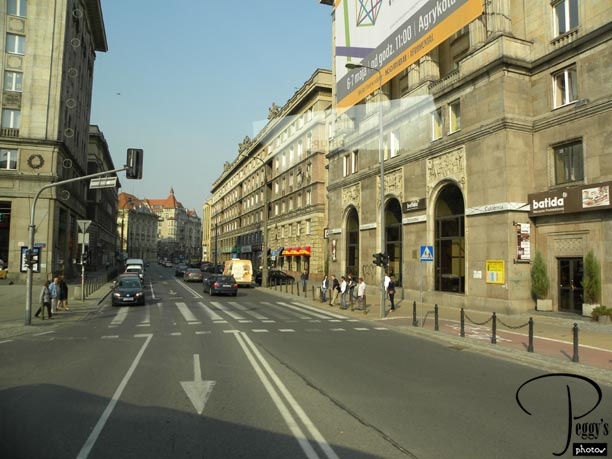
This morning, we took a bus tour of Warsaw. We didn’t stop at too many places, so what photos you were able to take depended on what side of the bus you were sitting on. This tour was mainly to give an overview of Warsaw. If you wanted to see more of it, a walking tour or a hop–on, hop–off bus was needed. Warsaw was 85% destroyed during World War II, so the buildings you see have been reconstructed, renovated, or built as new buildings. Photo: Warsaw seen from the bus.

Warsaw
Warsaw
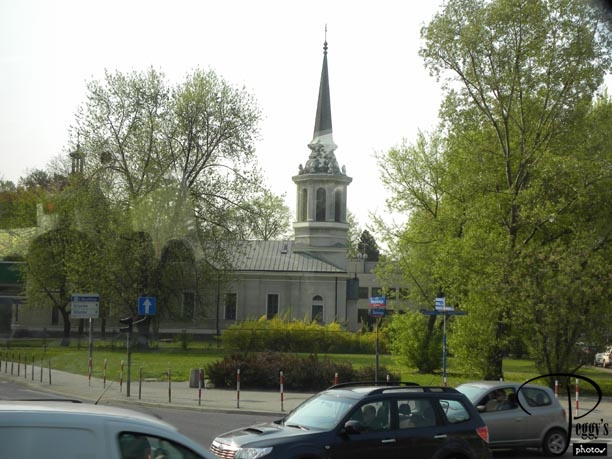
A church that we passed.

Warsaw
Warsaw
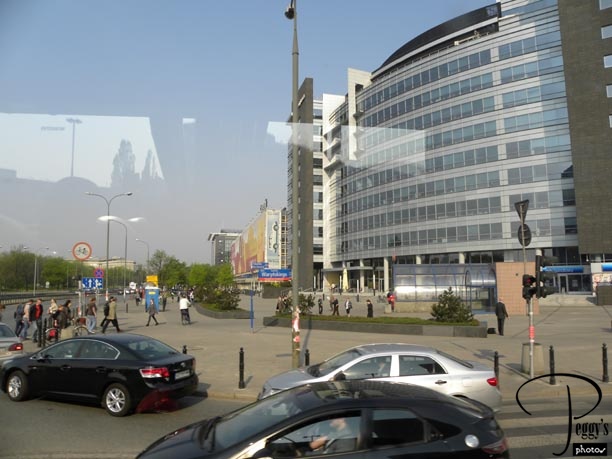
An area of new, modern buildings.

Warsaw
Lazienki Park
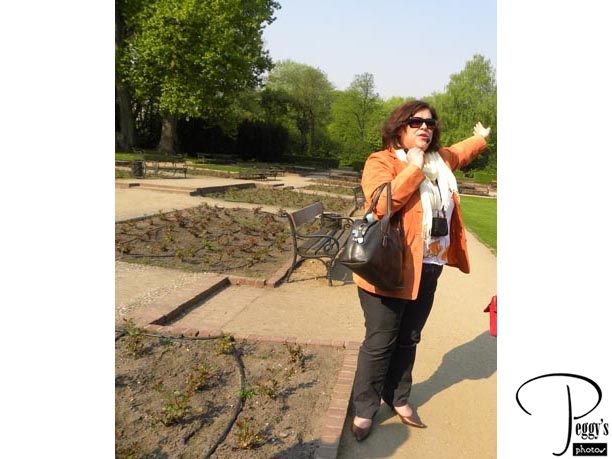
One of the places we stopped: Lazienki Park. This is Yolenta, our local guide. She was quite good and had a great sense of humor. She told us that if we had visited the park a few weeks later, it would be covered with red and yellow roses, Poland’s colors.

Lazienki Park
Lazienki Park
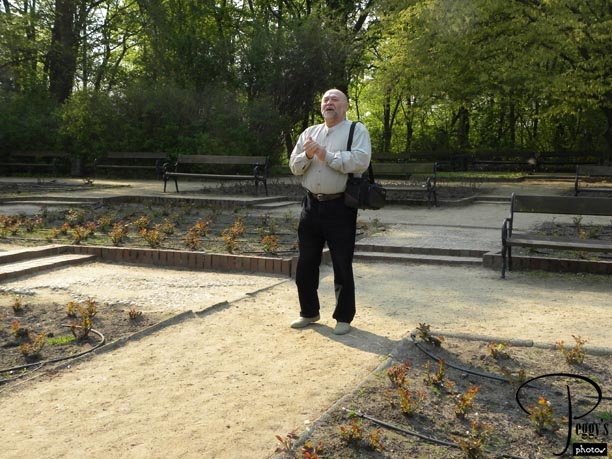
We were here to take our tour group photo. This was our jovial photographer. (Our tour group photo is at the end of the Days 1&2 album.)

Lazienki Park
Lazienki Park
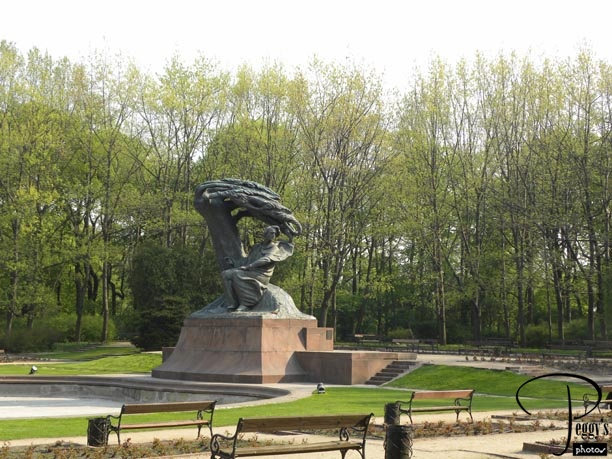
The Chopin Statue. We were told several times that Chopin was Polish even though he spent his adult years in Paris (the French and even the Germans claim him). Chopin’s heart, by his own request was brought back to Warsaw and placed in a pillar in the Church of the Holy Cross. Other famous Poles were Madame Curie and Copernicus. We were also told that, today, more people of Polish descent live in Chicago than in all of Warsaw.

Lazienki Park
Lazienki Park
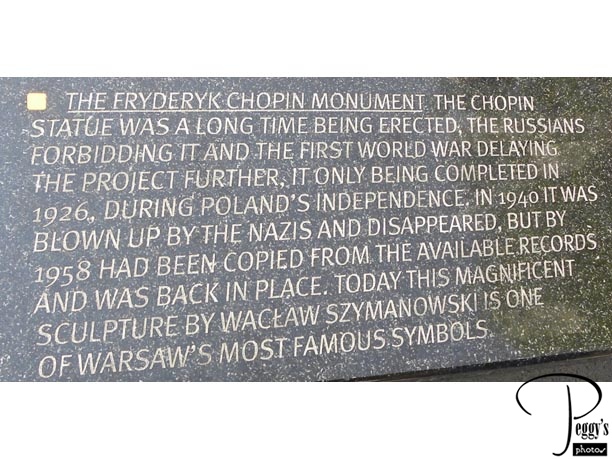
The history of the Chopin Monument.

Lazienki Park
Warsaw
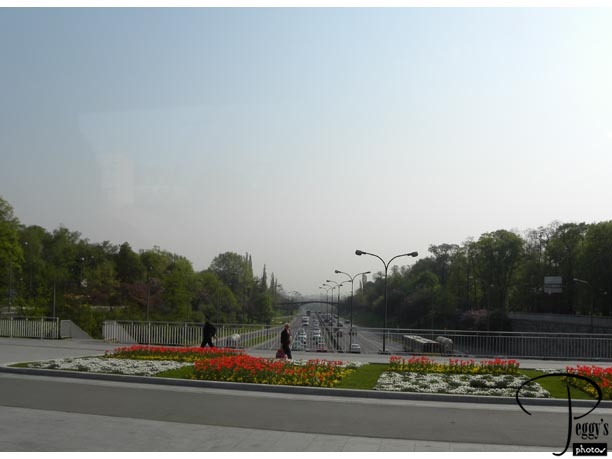
Flowers seen on our drive.

Warsaw
Warsaw
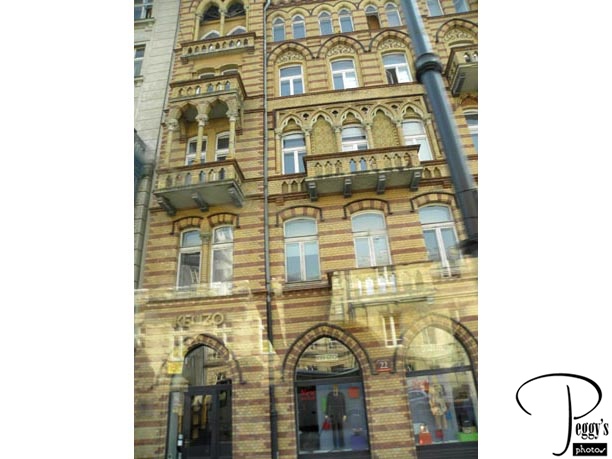
An old reconstructed building.

Warsaw
Warsaw
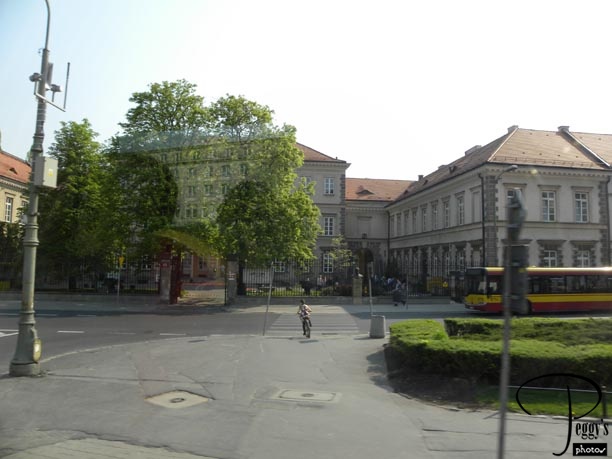
More buildings.

Warsaw
Warsaw
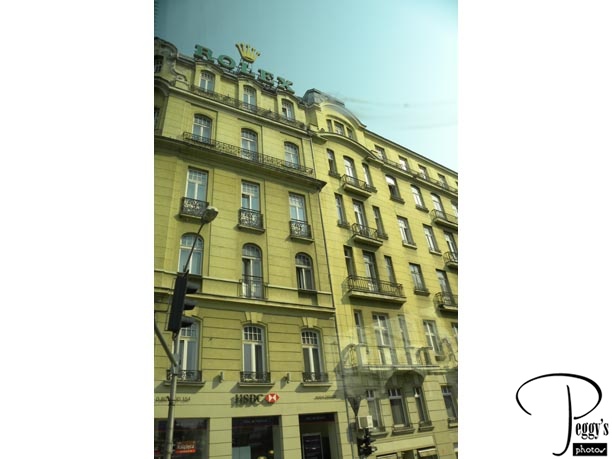
An old reconstructed building with a Rolex sign on top of it.

Warsaw
Warsaw
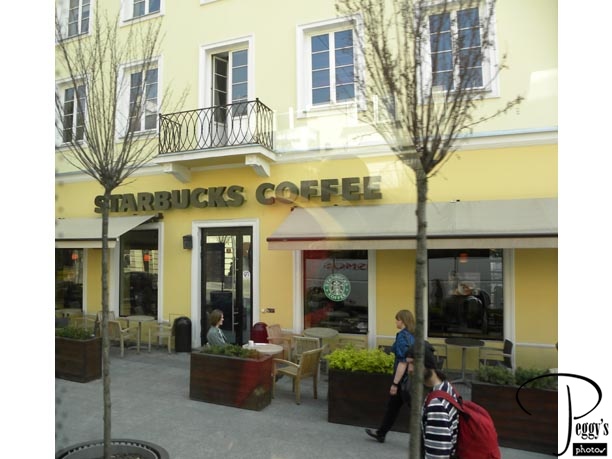
This Starbucks was in a very nice area of cafes and shops.

Warsaw
Warsaw
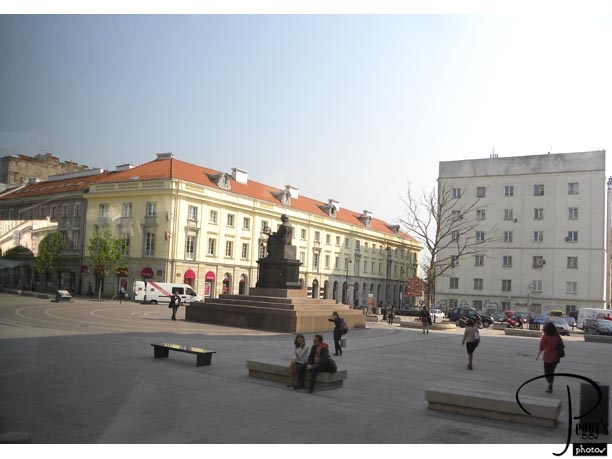
A large square.

Warsaw
Warsaw
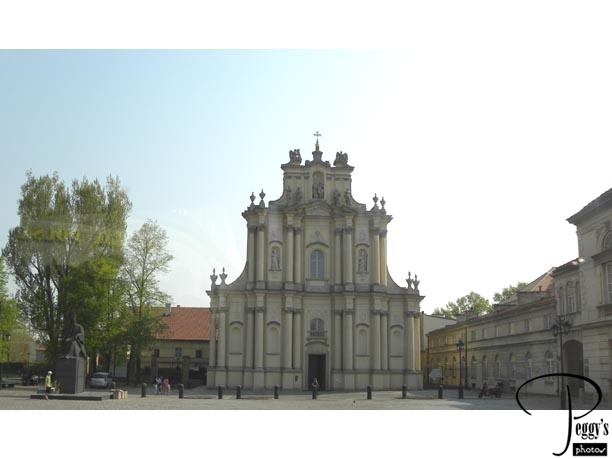
A very pretty church.

Warsaw
Warsaw
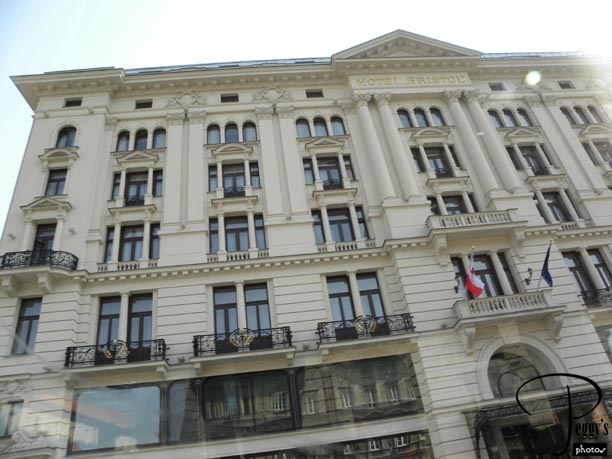
The Hotel Bristol.

Warsaw
Warsaw
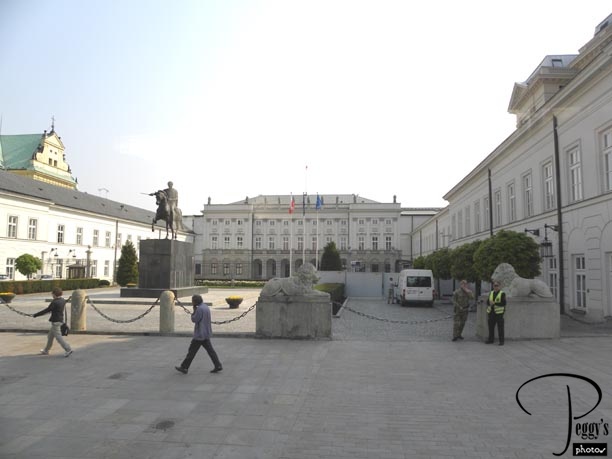
The Presidential Palace, originally built in the middle of the 17th century. The Warsaw Pact was signed here in 1955. It has been the official residence of the Polish president since 1994. The statue is of Prince Jozef Poniatowski who died in a fight in 1813.

Warsaw
Warsaw
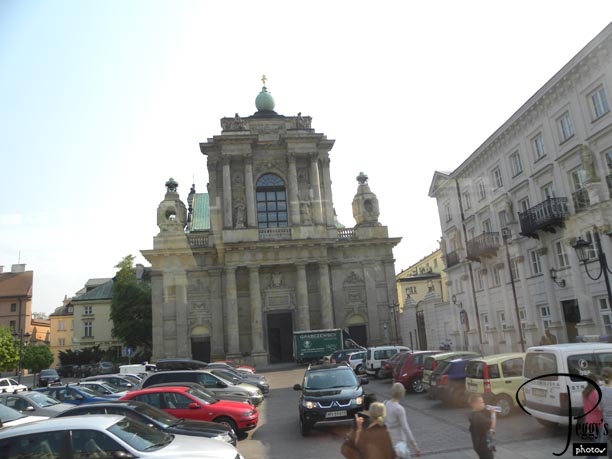
Another church seen on our drive.

Warsaw
Warsaw
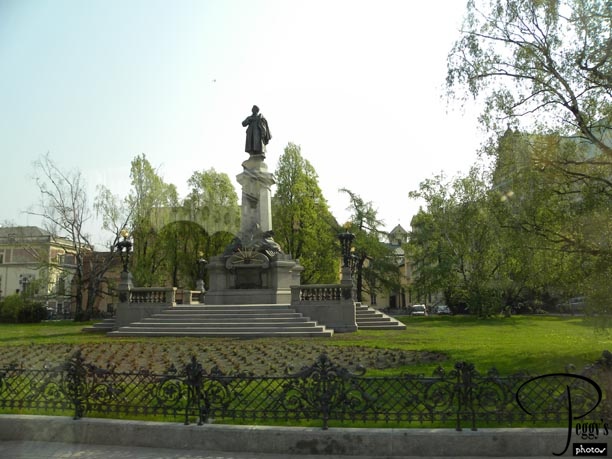
A statue in a park. There are numerous statues in Warsaw.

Warsaw
Warsaw

The Neo–Classical Carmelite Church.

Warsaw
Warsaw Uprising Monument
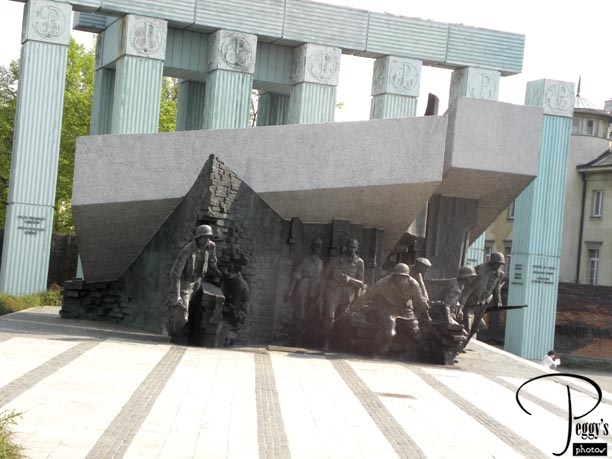
We only drove past this monument in Krasinski Square. Yolenta suggested that we walk to it from the Old Town where we were dropped off for lunch. I didn’t as I thought I would get lost and not get back to the bus in time. You can find more photos of the monument on the Internet if you are interested.
The monument commemorates the Warsaw Uprising that began August 1, 1944, against the Nazi occupation. The Polish resistance lasted for 63 days without them having any outside help (the Red Army waited until the Germans won before they came to help Warsaw, thereby gaining control of Poland). This part of the monument is the Insurgent Unit.

Warsaw Uprising Monument
Warsaw Uprising Monument
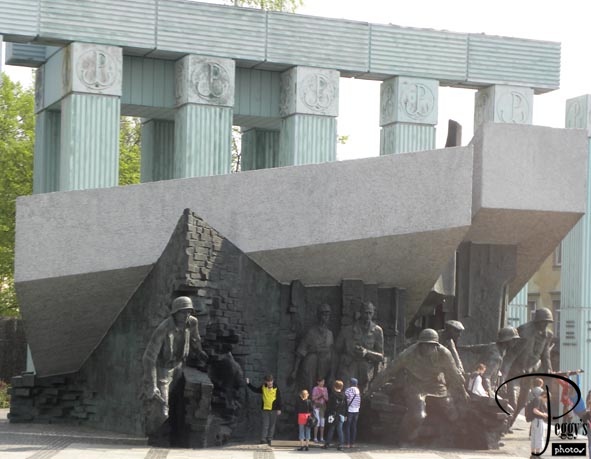
Closer–up view of the monument being visited by school children.

Warsaw Uprising Monument
Warsaw Uprising Monument
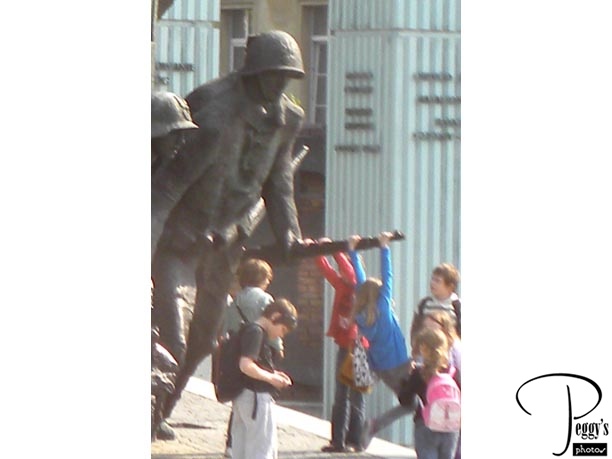
The children look like they are having fun.

Warsaw Uprising Monument
Warsaw Uprising Monument
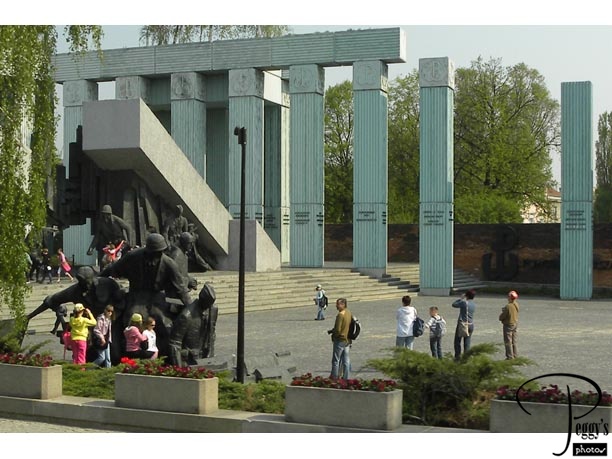
This part of the monument is called the Exodus Unit. It represents a withdrawal by the canals.

Warsaw Uprising Monument
Warsaw Uprising Monument
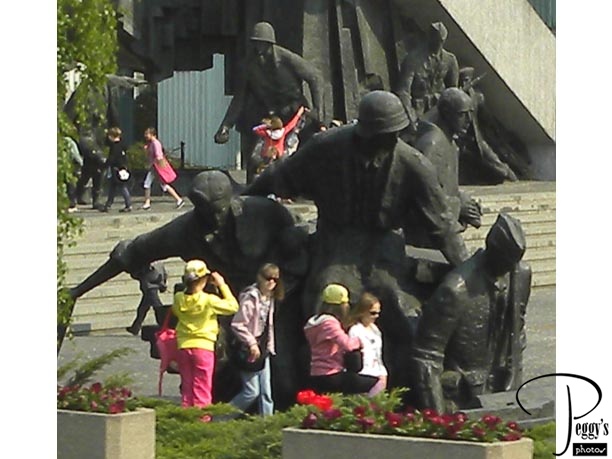
A closer–up view of the Exodus Unit.

Warsaw Uprising Monument
Warsaw
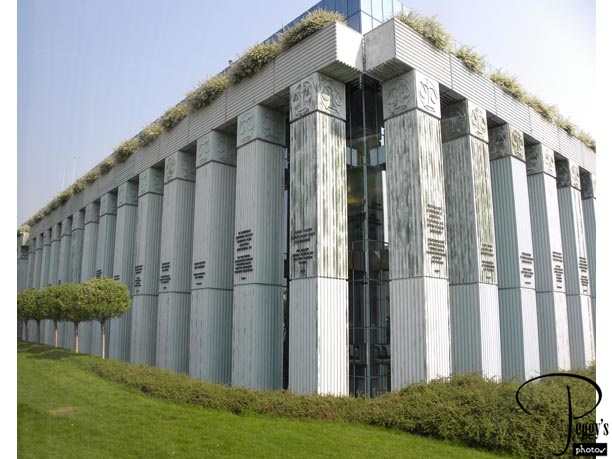
Next to the Warsaw Uprising Monument is the Supreme Court.

Warsaw
The Ghetto Heroes Square
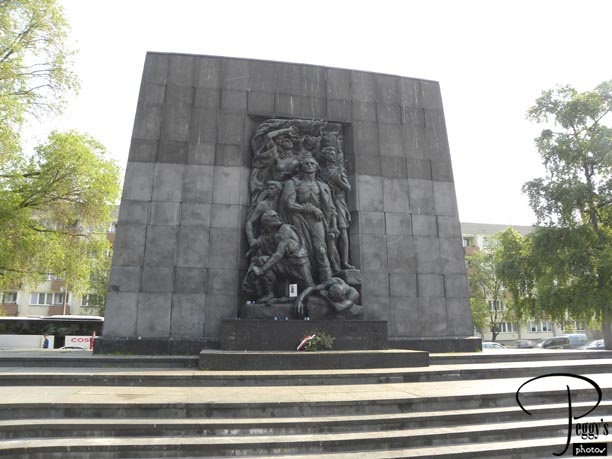
We stopped at the Ghetto Heroes Square. By the 1930’s, more than 380,000 Jews lived in Warsaw, nearly one–third of all the world’s Jews. In 1939, the Nazis moved all the Jews in Warsaw plus Jews from other Polish areas into a ghetto which was surrounded by a wall. The ghetto’s population reached about 1 million people. About one–fourth of them died from disease, murder, or suicide and most of the remaining Jews were sent to the Treblinka or Auschwitz and lost their lives in the concentration camps. Word got back to the Jews still remaining in the ghetto as to what was really happening and on April 19, 1943, there was a Ghetto Uprising with the Jews attacking the Nazis. In less than a month, the Nazis crushed the uprising and the remaining Jews and the ghetto structures were annihilated.
The front of the monument commemorates the Jews who lost their lives in the ghetto.

The Ghetto Heroes Square
The Ghetto Heroes Square
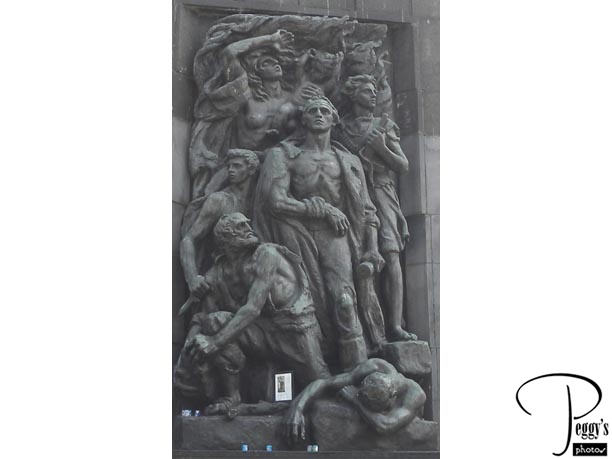
Closer–up view.

The Ghetto Heroes Square
The Ghetto Heroes Square
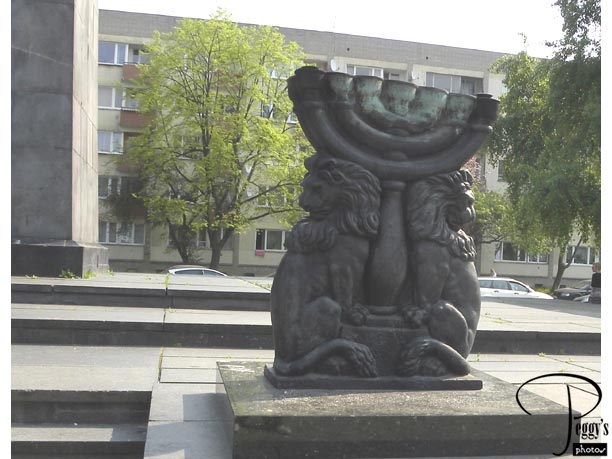
On the side of the monument.

The Ghetto Heroes Square
The Ghetto Heroes Square
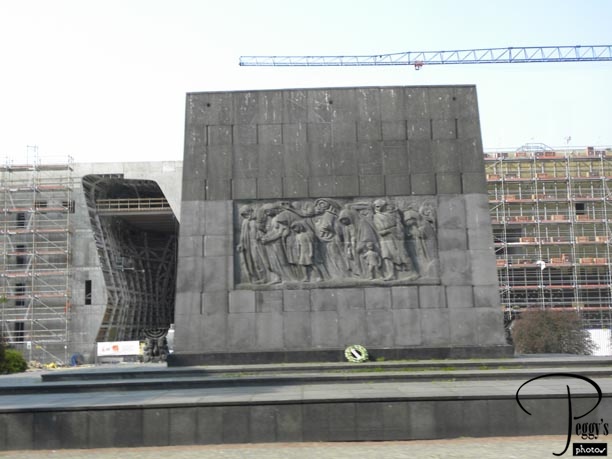
The back of the monument, showing Jews marching to their deaths. Behind it, a Museum of the History of Polish Jews is being built.

The Ghetto Heroes Square
The Ghetto Heroes Square
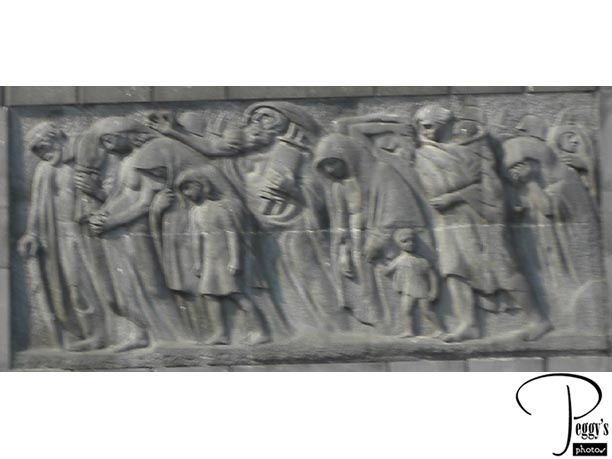
Close–up of the monument.

The Ghetto Heroes Square
Warsaw
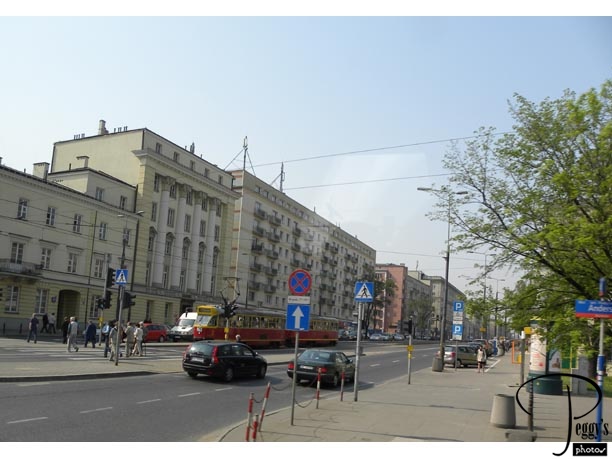
Area of where the Jewish ghetto was.

Warsaw
Warsaw
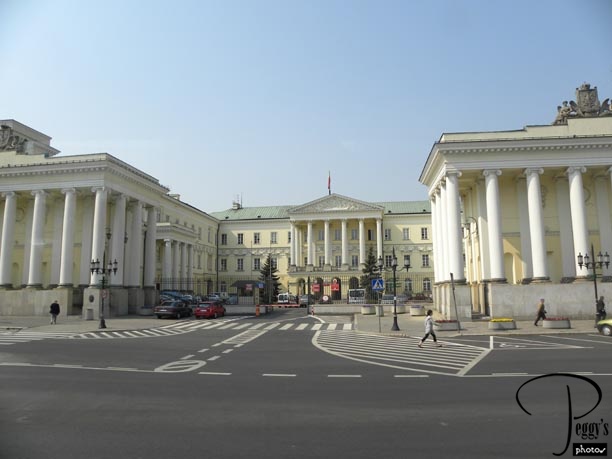
The City Council building.

Warsaw
Warsaw
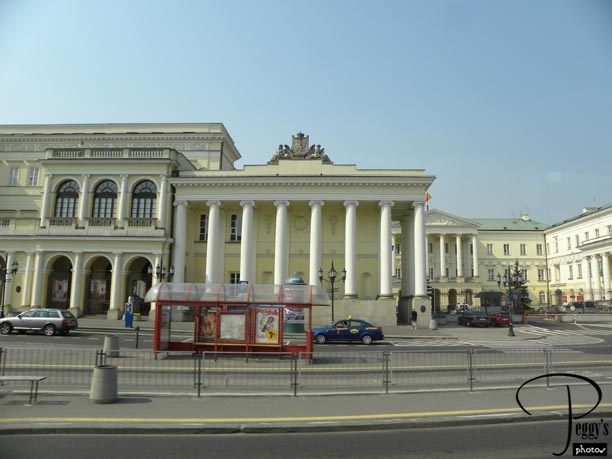
The City Hall next to the City Council.

Warsaw
Warsaw

More of the City Hall.

Warsaw
Warsaw
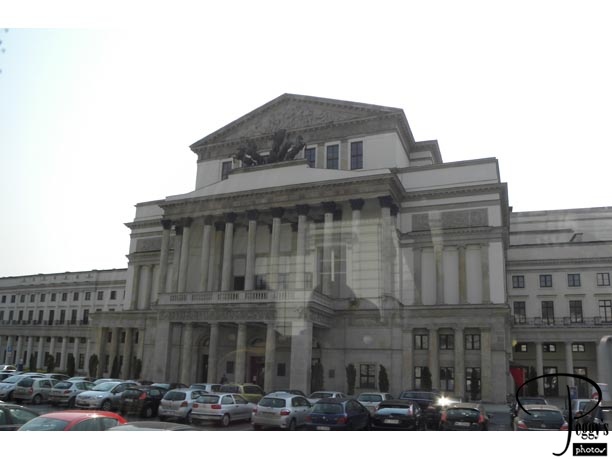
Another very large building.

Warsaw
Warsaw

And another. Warsaw had many large, impressive buildings.

Warsaw
Warsaw
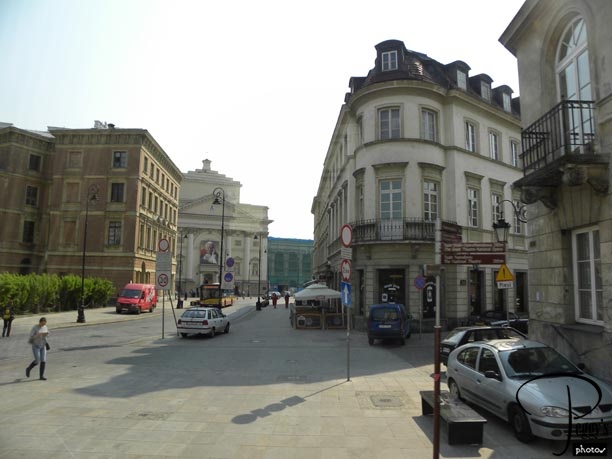
A city scene.

Warsaw
Warsaw
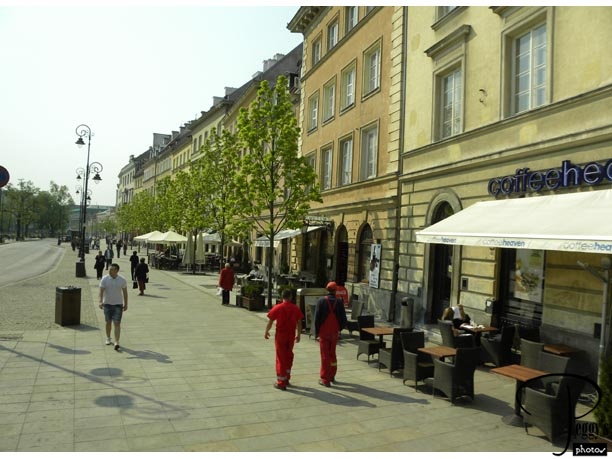
A very nice area with a broad sidewalk.

Warsaw
Warsaw
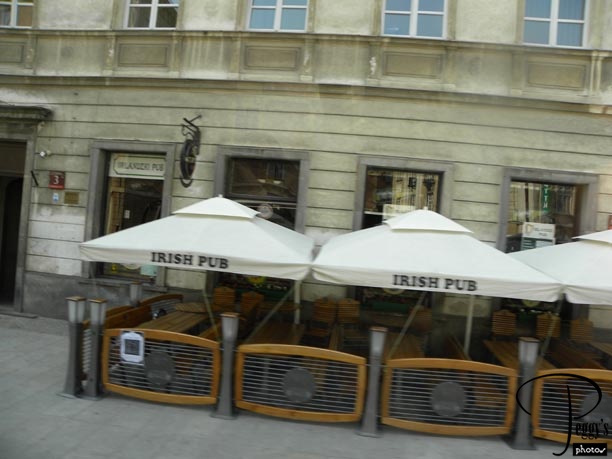
An Irish pub.

Warsaw
Warsaw’s Old Town and New Town (See Slide Show)
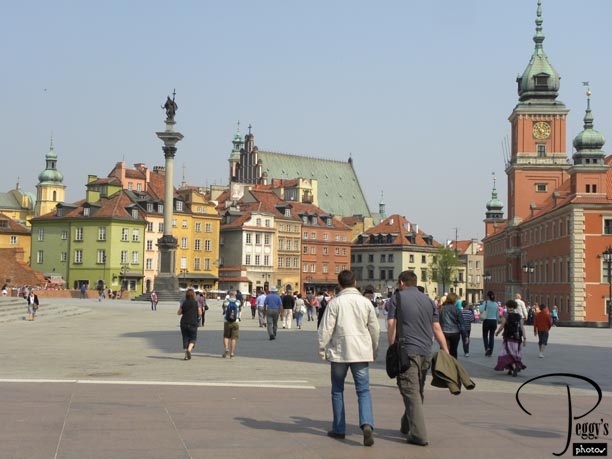
We had a walking tour of Warsaw’s Old Town and also ate lunch here. The photo is of Castle Square. I have put my photos of Warsaw’s Old Town on a slide show: go to Slide Shows, Central/Eastern Europe–1, Warsaw’s Old Town and New Town.

Warsaw’s Old Town and New Town (See Slide Show)
Warsaw’s Old Town
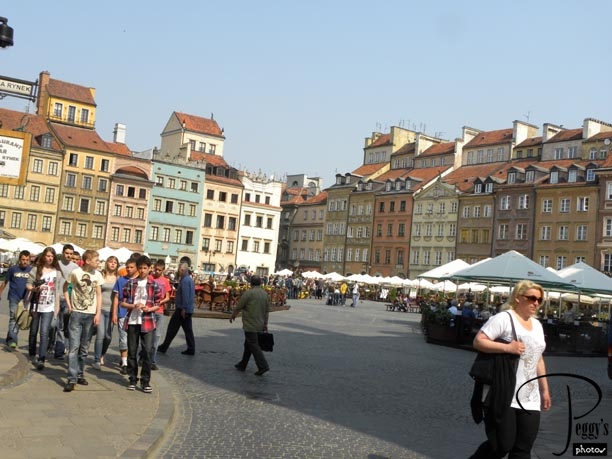
This is the Market Square in Warsaw’s Old Town, which has been completely rebuilt. There is much to explore in this area and you could easily spend a full day walking around the area. I didn’t want to sit at a cafe for lunch, so I had a French bread pizza from a restaurant with an order window opening on the sidewalk. It was the worst pizza I have ever had––I think the pizza sauce was ketchup. I could only eat a few bites of it, but I saw some other people devouring it. It must be an acquired taste. I had an ice cream instead.

Warsaw’s Old Town
Warsaw’s Old Town and New Town
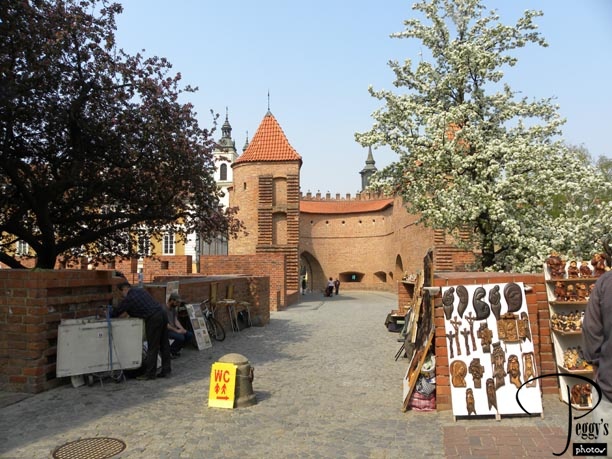
From the Market Place, you can walk to the Barbican (the Old City Gate) and then through the gate to the New Town. It is a delightful area.

Warsaw’s Old Town and New Town
Warsaw’s Old Town
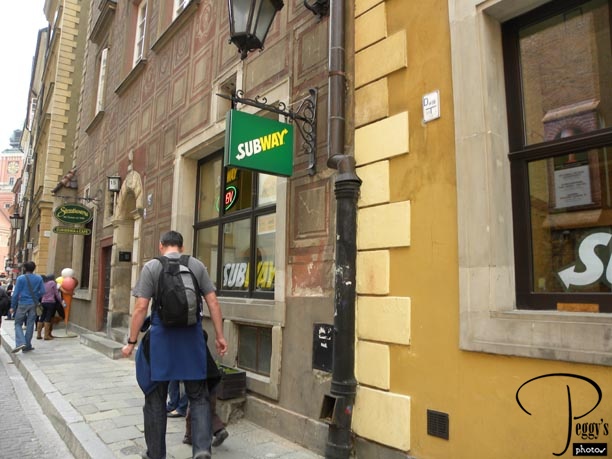
When walking back to where the bus would pick us up, I spotted a Subway. I was still hungry and ordered a ham and cheese sandwich with mustard (ham and cheese sandwiches are my mainstay in Europe––they can’t be too easily goofed up). However, mustard doesn’t seem to be an easily understood word in foreign countries, so the sandwich maker put something else on the sandwich. It was eatable and I was happy.

Warsaw’s Old Town
Wilanow Palace
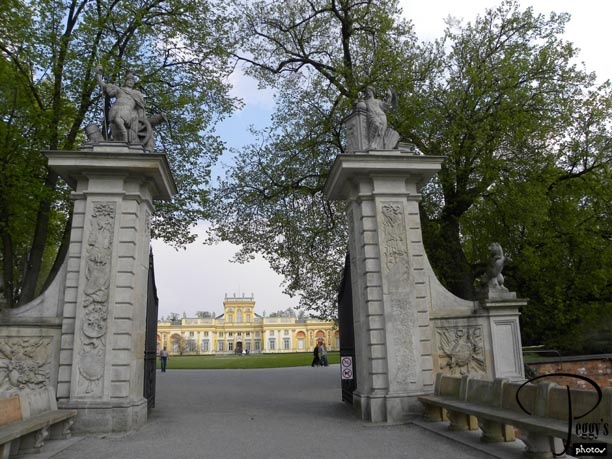
Our next stop was Wilanow Palace, a beautiful baroque palace built for the Polish king John III Sobieski at the end of the 17th century. It was damaged in WWII and reopened to the public in 1962 after being renovated.

Wilanow Palace
Wilanow Palace
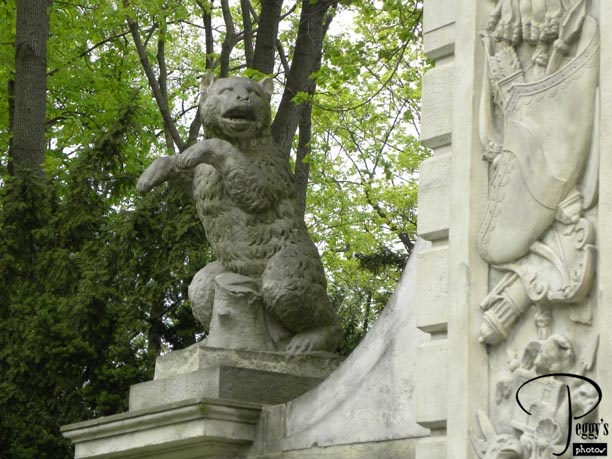
One of the statues on the entrance gate.

Wilanow Palace
Wilanow Palace
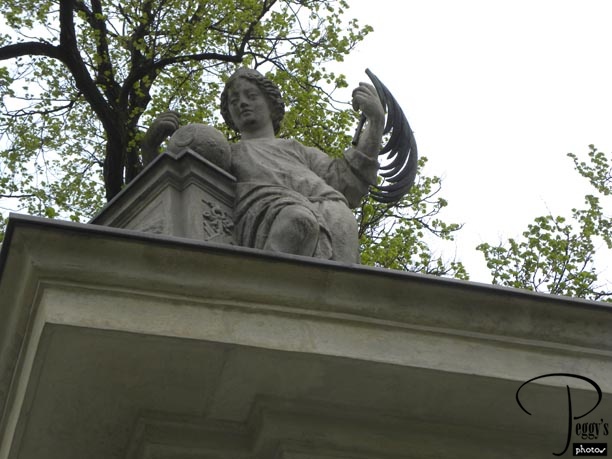
Another of the statues.

Wilanow Palace
Wilanow Palace
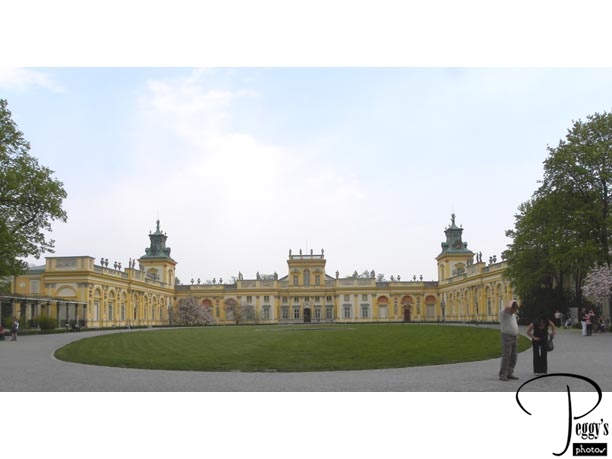
Inside the gate.

Wilanow Palace
Wilanow Palace
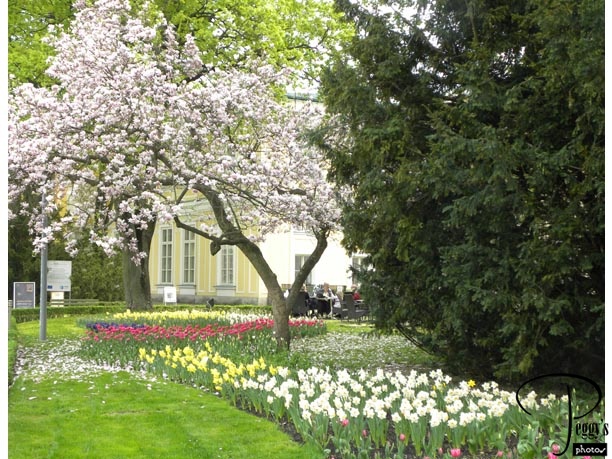
Some of the beautiful flowers at the palace.

Wilanow Palace
Wilanow Palace
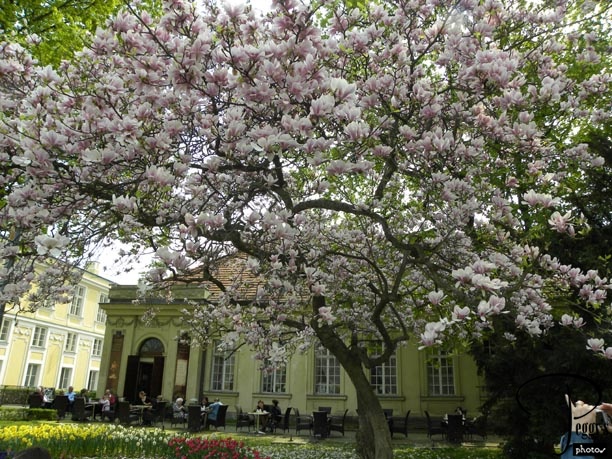
The flowering tree.

Wilanow Palace
Wilanow Palace
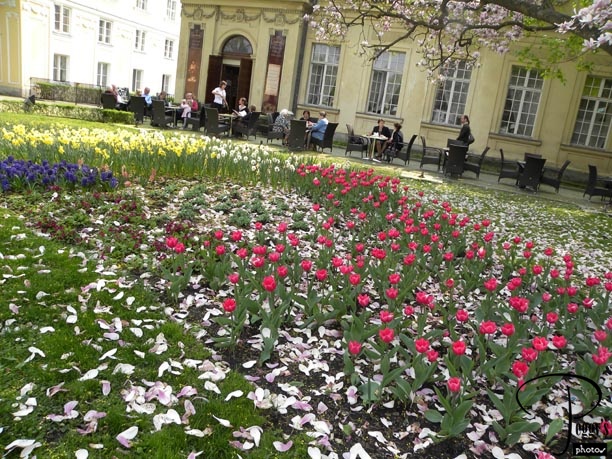
More of the flowers.

Wilanow Palace
Wilanow Palace
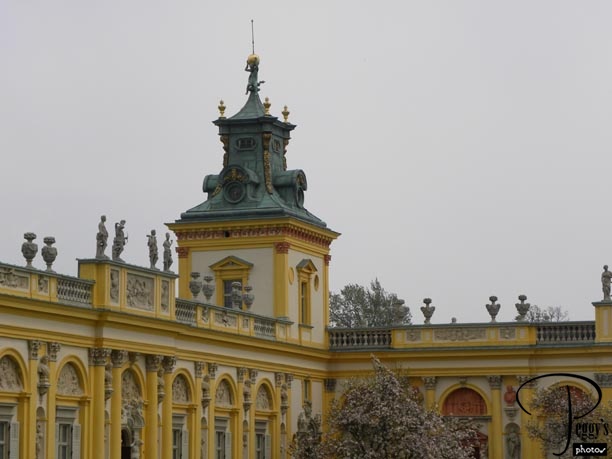
A close–up of one of the palace’s towers.

Wilanow Palace
Wilanow Palace
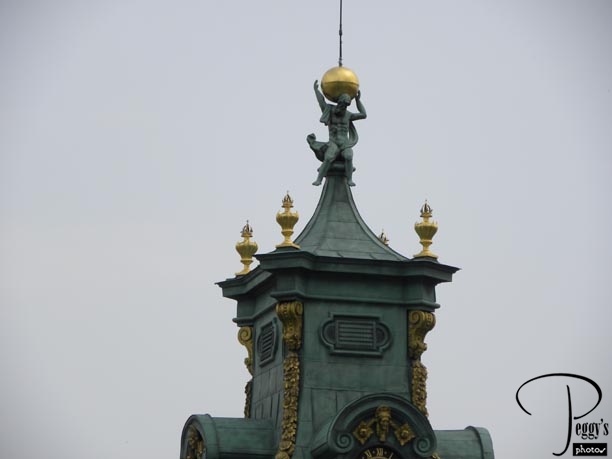
Closer–up.

Wilanow Palace
Wilanow Palace
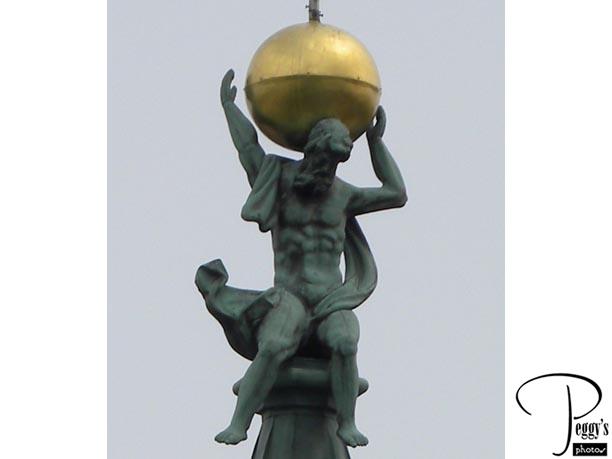
And closer–up.

Wilanow Palace
Wilanow Palace
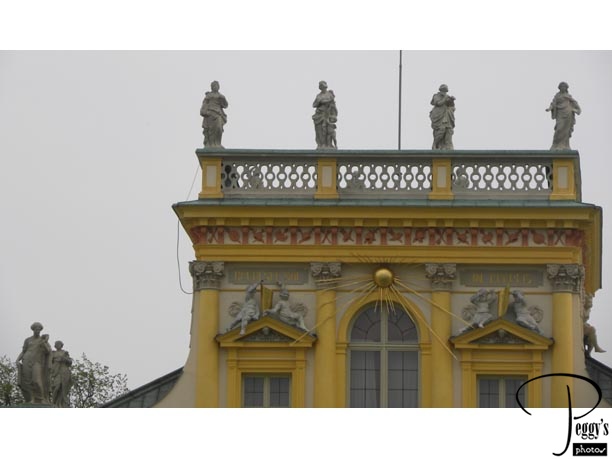
Close–up of the roof statues.

Wilanow Palace
Inside Wilanow Palace (See Slide Show)
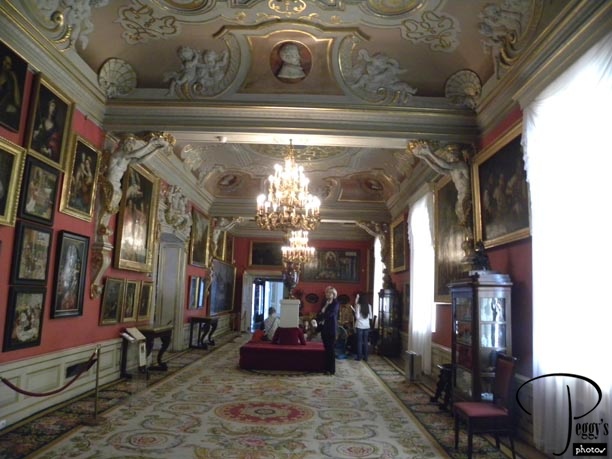
I have put the inside of Wilanow Palace on a slide show: Go to Slide Shows, Central/Eastern Europe–1, Inside Wilanow Palace. The inside is luxurious and beautiful and has retained its original furniture.

Inside Wilanow Palace (See Slide Show)
Portraits in Wilanow Palace (See Slide Show)
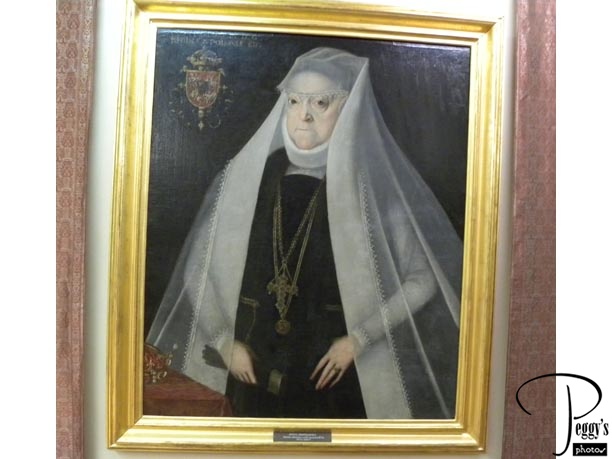
Several galleries of portraits of previous kings and royal family members and others hang in the Wilanow Palace. I have picked my favorite ones and have put them on a slide show. Go to Slide Shows, Central/Eastern Europe, Wilanow Castle, Favorite Portraits or go directly to
http://wp.peggysphotos.com/wilanow–castle–warsaw–favorite–portraits/

Portraits in Wilanow Palace (See Slide Show)
Wilanow Palace
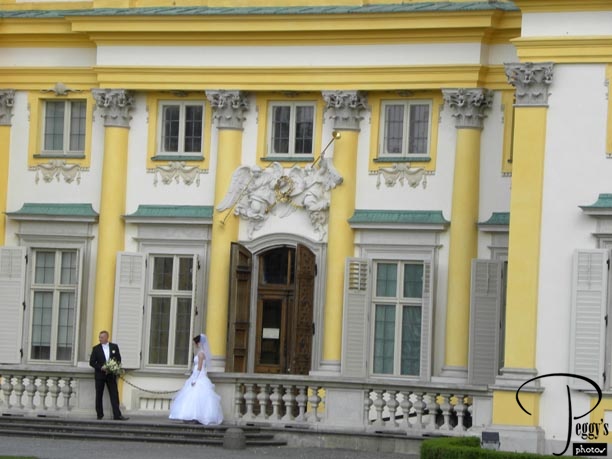
Wedding photos are being taken here.

Wilanow Palace
Wilanow Palace
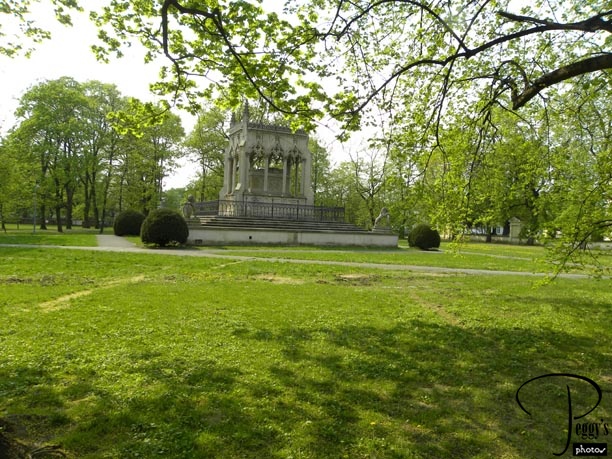
A sarcophagus is in this enclosure but no one is buried in it. The statue on top has four feet. We did not get a good view of it but were told this.

Wilanow Palace
Wilanow Palace
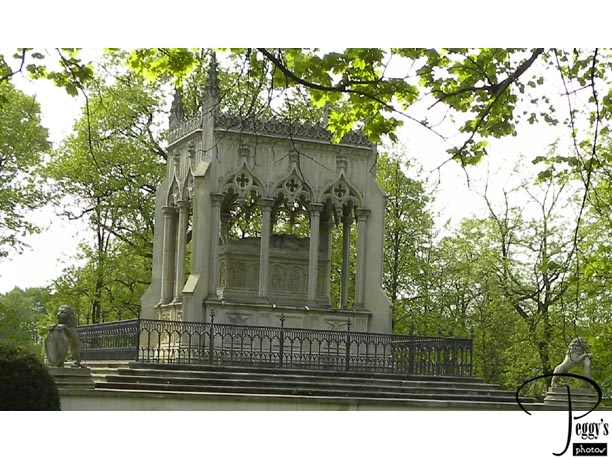
Closer–up view.

Wilanow Palace
Wilanow Palace
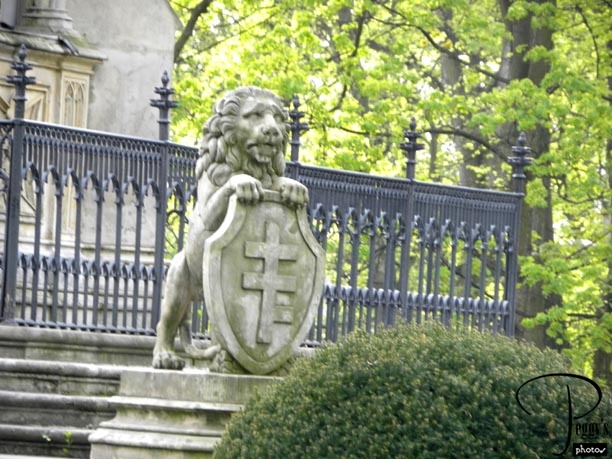
Lion statue in front of the iron fence.

Wilanow Palace
Wilanow Palace
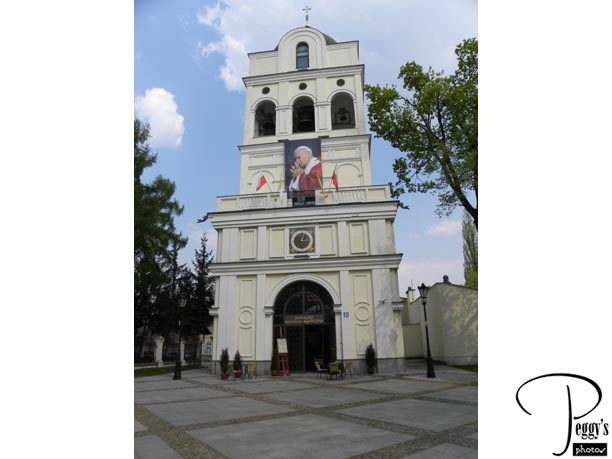
Church outside the palace gate.

Wilanow Palace
Wilanow Palace

Old bells outside the palace gate.

Wilanow Palace
Back at Our Hotel
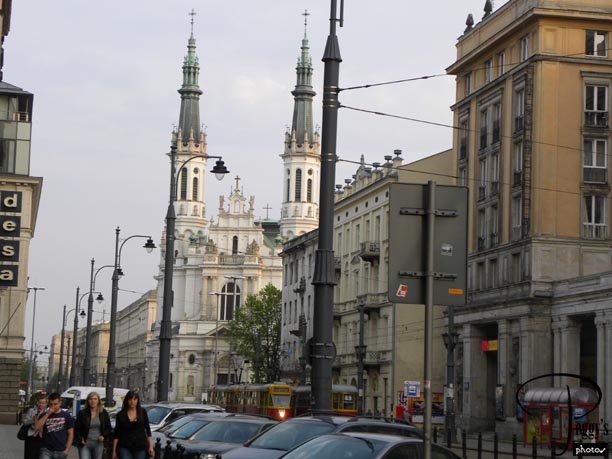
Dinner was not included tonight so I walked to a restaurant nearby. Photo: Seen when crossing the street.

Back at Our Hotel
Back at Our Hotel
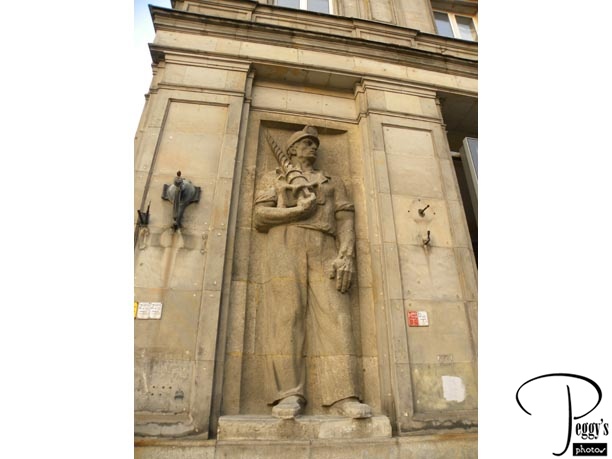
Statue in a niche in a building I passed.

Back at Our Hotel
Back at Our Hotel
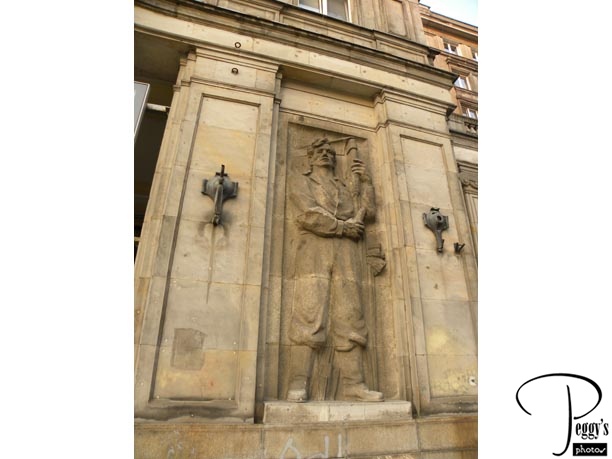
Another statue in another niche.

Back at Our Hotel
Restaurant
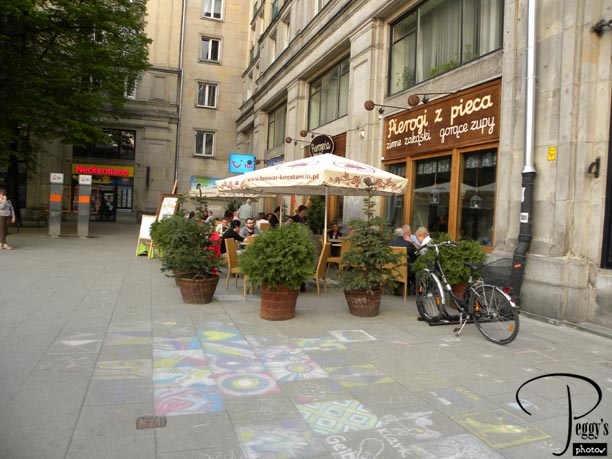
Where I would eat dinner: at the Pierogi z pieca, a Polish restaurant specializing in pierogi.

Restaurant
Restaurant
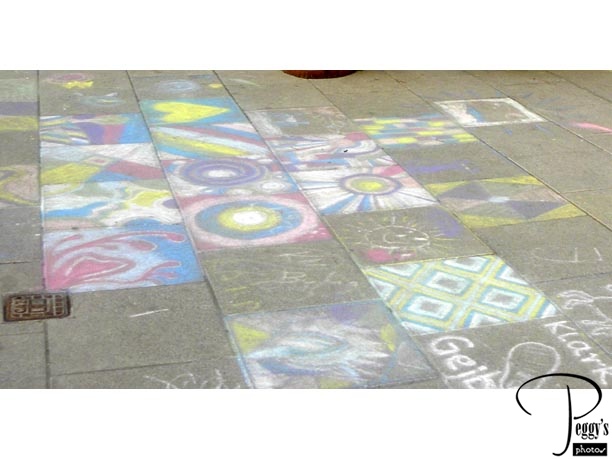
Some artists have been busy on the sidewalk.

Restaurant
Restaurant
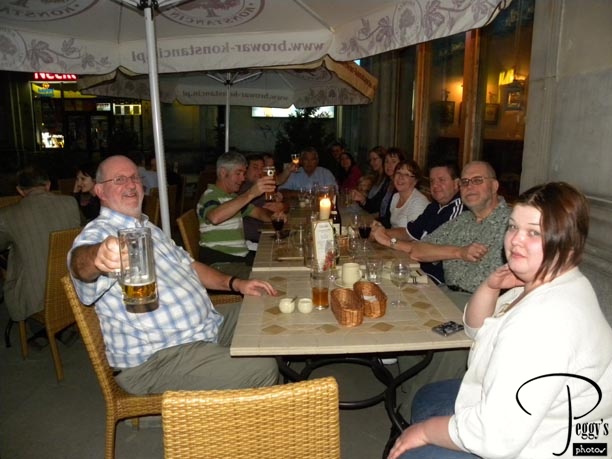
The gang (some of my tour group) was already here.

Restaurant
Restaurant
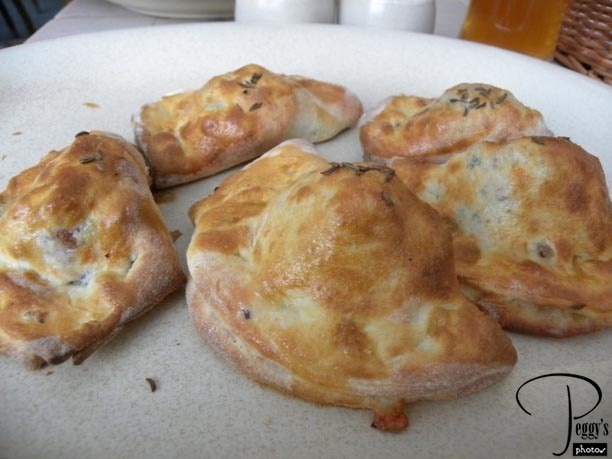
I ordered pierogi, which when boiled are like ravioli, but when baked, as mine were, they reminded me of empanadas. You could order them with different fillings, mainly some kind of meat. Some of the fillings: chicken and mushrooms; meat, sauerkraut, and plums; bacon, green peas, and cheese; bacon, grouts, and buckwheat; and cottage cheese, potatoes, and garlic. I had pierogi filled with pork. They were good. I also had a beer. Some of us were going to order dessert pancakes but we were told that the restaurant had run out of pancakes.

Restaurant
Near Our Hotel
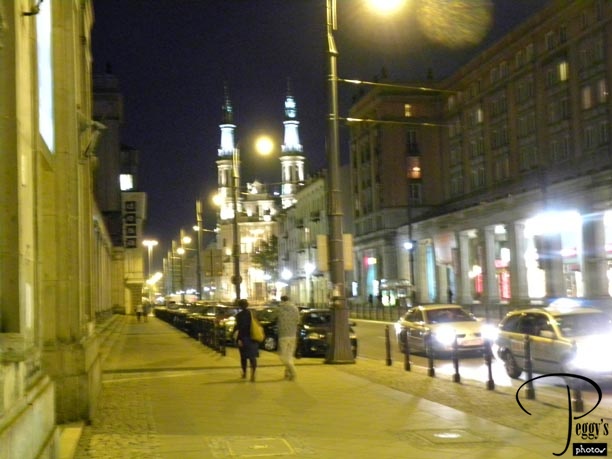
Seen on my walk back to our hotel. Tomorrow we would leave Warsaw and drive to Krakow.
